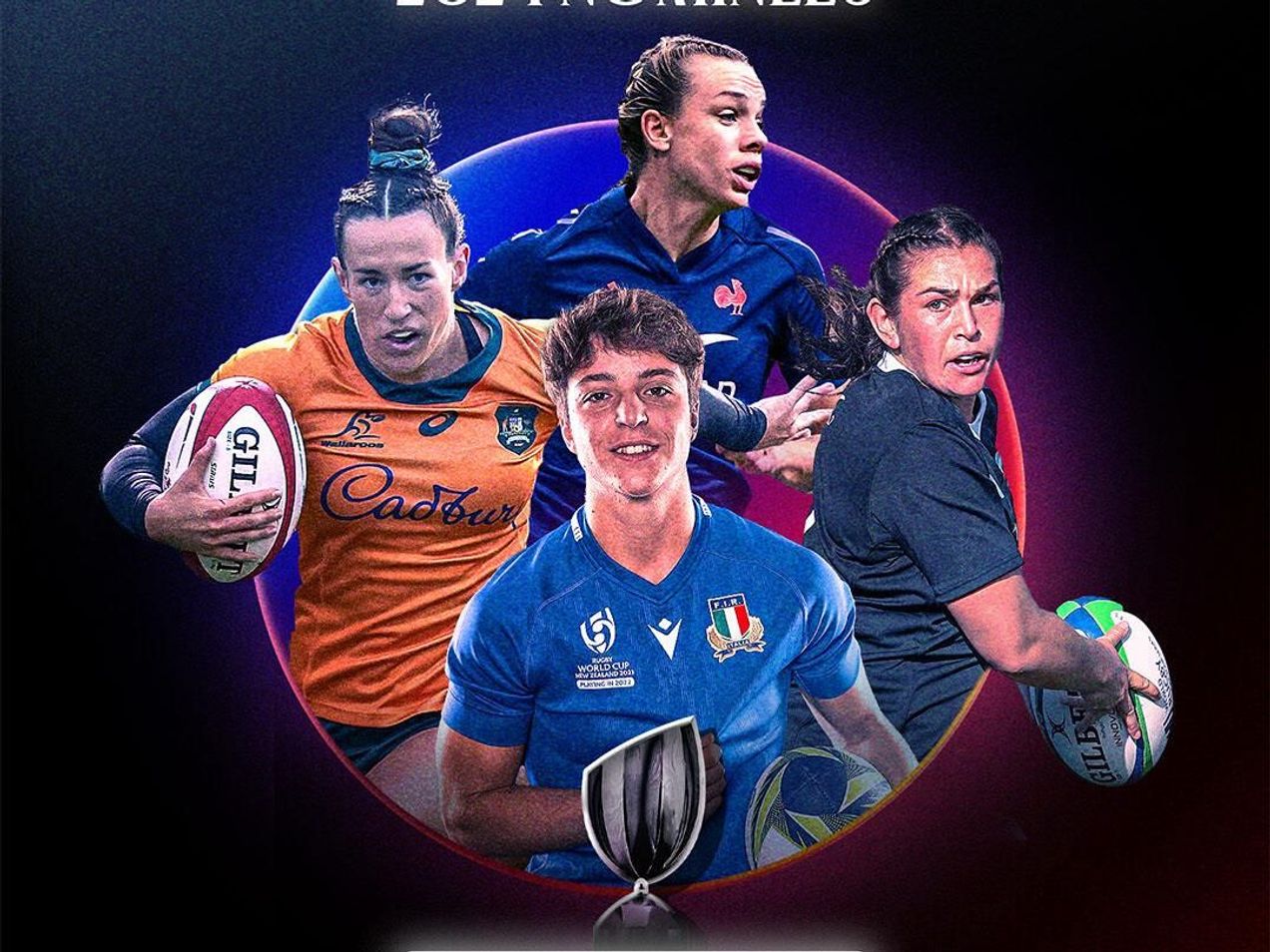Dr Araba Chintoh is confident World Rugby has “the right people in the room” following the first meeting of the Women’s Player Welfare Steering Group.
It was confirmed at the start of November that World Rugby had established the steering group, which will exclusively focus on the advancement of player welfare initiatives and interventions designed specifically for the women’s game at all levels.
Chintoh, who was named chair, convened its first meeting during last month’s World Rugby Medical Commission Conference in London, and says she was energised by their time together.
The group is made up of 13 members (Chintoh, Dr Danielle Salmon, Nic Evans, Cathy Wong, Dr Anna Stodter, Dr Serge Simon, Professor Ross Tucker, Rachael Burford, Dr Sharron Flahive, Nicky Ponsford, Dr Éanna Falvey, Yvonne Nolan and Mark Harrington), who provide a wealth of medical, legal, research and playing expertise.
Although not all were able to attend in person, Chintoh hopes to hold one-on-one meetings with each before they come together again in February.
Initiatives & research to advance women-specific rugby welfare were the key themes of the first Women’s Player Welfare Steering Group chaired by former Canada international Dr Araba Chintoh pic.twitter.com/P0pWW4HmXA
— World Rugby Media (@worldrugbymedia) November 15, 2021
“We have a breadth of people [with] different skill sets who are in the group and so, for me as the chair, it is very exciting,” Chintoh told World Rugby.
“One of the things I do well is create a space where different perspectives can be heard and in that meeting, it confirmed that we have a solid group to address some of these key issues.
“And, when I say that, I'm not even sure that we know what the key issues are yet, but I think we've got the right people in the room to figure out it.
“Overall, I was quite excited. World Rugby has supported putting this together, and that's huge.
“So many of us women and even men, although they might not know it, have come up in an era where women in rugby were fighting to survive and were largely ignored.
“We were not disallowed from being in the room, per se, but it felt like no one was paying attention to us or putting any effort into our programmes. I think it's quite meaningful that World Rugby has acknowledged the importance of women's initiatives and is supporting this advancement by convening this group.”
Examining the data
Chintoh was proud to have been offered the opportunity to lead the steering group by her World Rugby Women’s Executive Leadership Scholarship mentor, Mark Harrington, but admitted she felt a responsibility not to “mess this up”.
Research into player welfare has traditionally focused almost exclusively on male players. However, World Rugby outlined an ambitious six-point action plan earlier this year to become the most progressive sport in this space.
Early findings suggest that women experience some injuries in a different way to men and Chintoh says that “at this time, 2021, we have too much information, we have too much knowledge, not to look further into it”.
“We know all these things about injury, which we've taken from the men because that's where the data was,” she added.
“Some of the data may be the same. We might discover that women have the same rate of shoulder dislocations or the same mechanism of injury as men, for example.
“But some of that data might be different – there's some evidence that suggests women don't get concussion in the same way as men – and if that's the case, maybe then we need to circle back and say, ‘Do we change the laws to protect women in the same way that we've changed the laws to protect men?’
“Do we implement different exercise strategies? Do we implement different training regimes so that we are protecting both sets of players in a player-specific way?
“I think that speaks to World Rugby's overarching goal, which is player welfare.”
Reconnecting with rugby
Chintoh was one of 12 recipients of the inaugural Women’s Executive Leadership Scholarship in 2018, something that allowed her to reconnect with the games she loves.
Despite having enjoyed a 10-year test career, in which she represented Canada at Rugby World Cup 2002, Chintoh was not involved with the game prior to being accepted onto the leadership programme.
“We do this thing as an act of love. We dedicate our time, in many of the countries we dedicated our money, we put our educations aside, we did this thing and then we stepped away,” the consultant psychiatrist said.
“What World Rugby has done with these leadership scholarships is allowed many women back into rugby in a space that's not just coaching.
“My mentors have showed me that this medical knowledge that I have as a doctor and my research experience that I have from my PhD has left me with a valuable skill set that I'm actually able to apply to the sport that I love.”
Being part of the scholarship programme has not only given Chintoh access to decision-making bodies and committees but has provided her with a community of female leaders across the globe that she is able to tap into for help and support.
“There is this group of women now, [from] the four years that we've had the scholarship,” Chintoh said.
“We get together, quarterly on Zoom calls, and we share experiences, we share our own personal projects, and we hear what's happening around the world – we are literally around the world.
“So, that community has bolstered me in terms of knowing that if I help to make a decision about something, it's actually going to impact my friend in Iran, or Laos, or Austria.
“The scholarship has provided me with a global community in rugby as well as given me access and authority to lead.”






